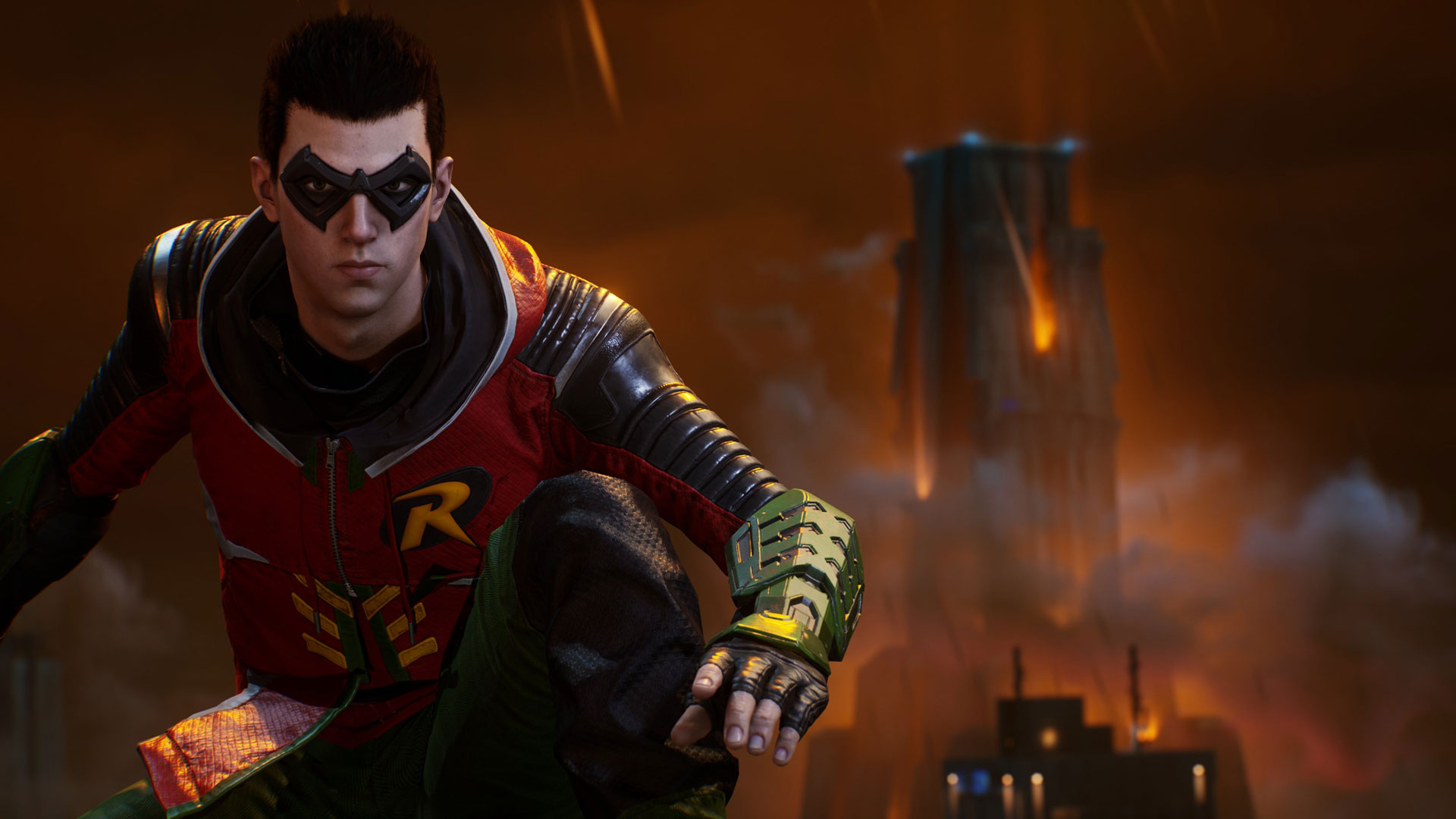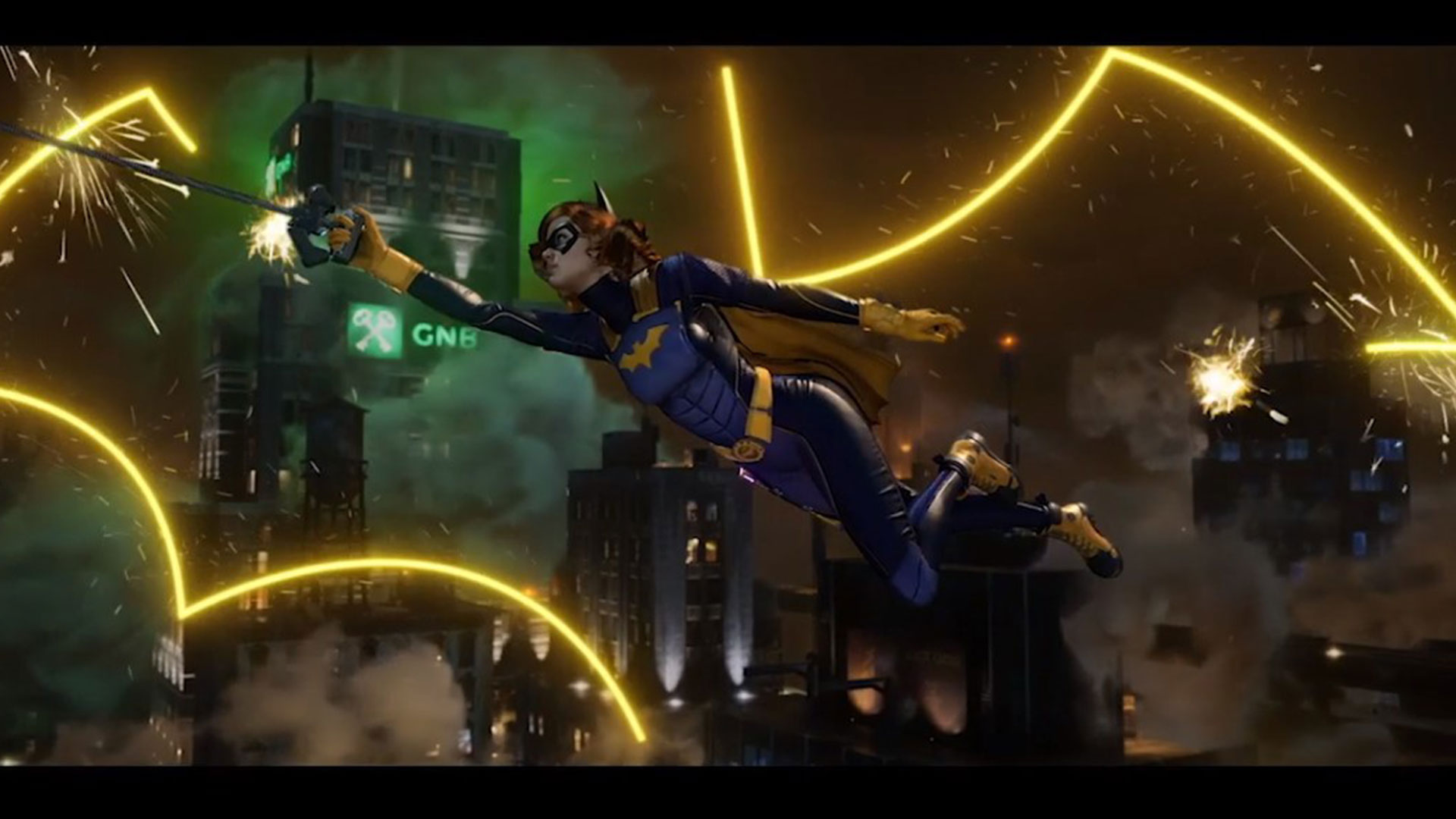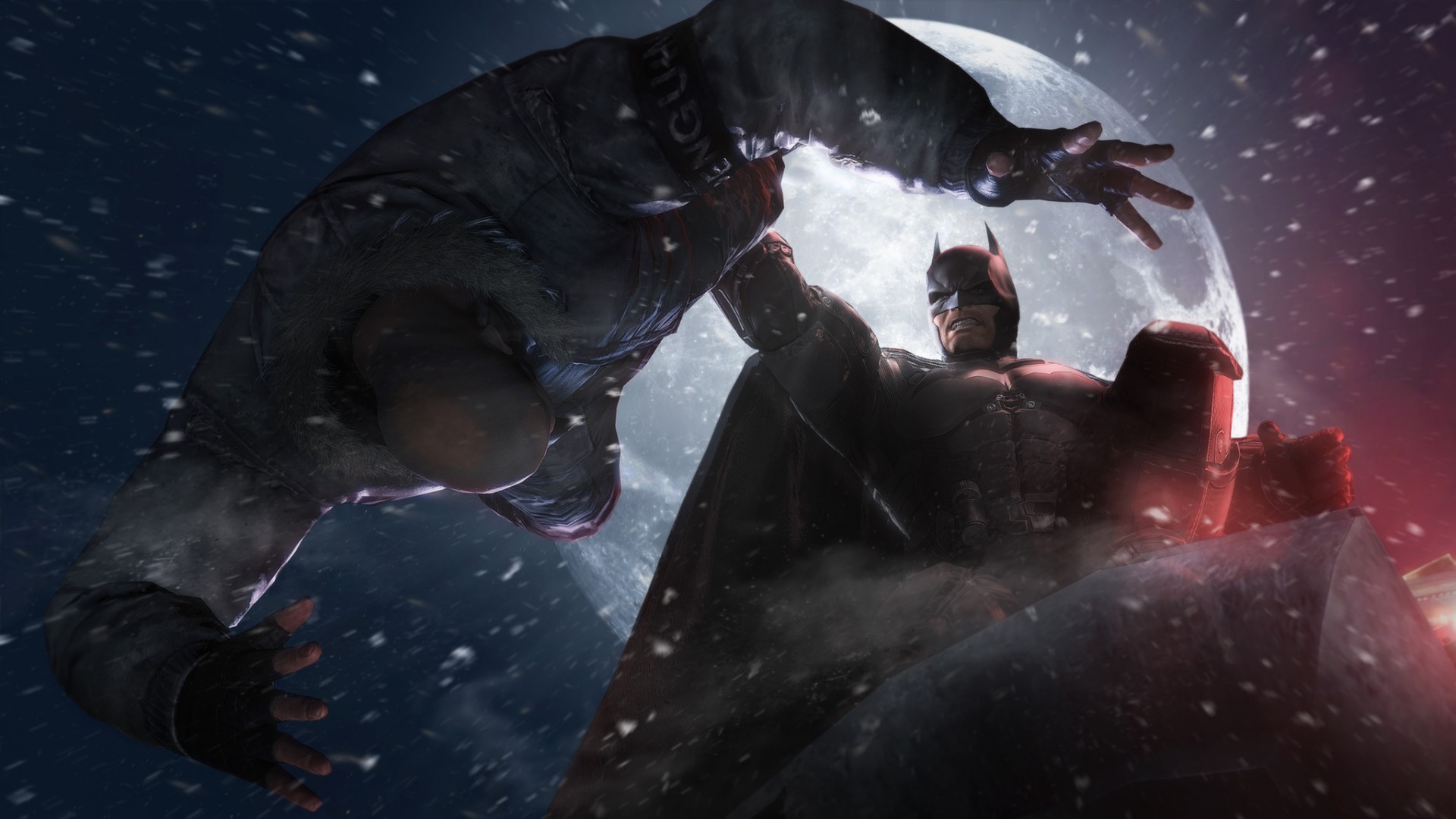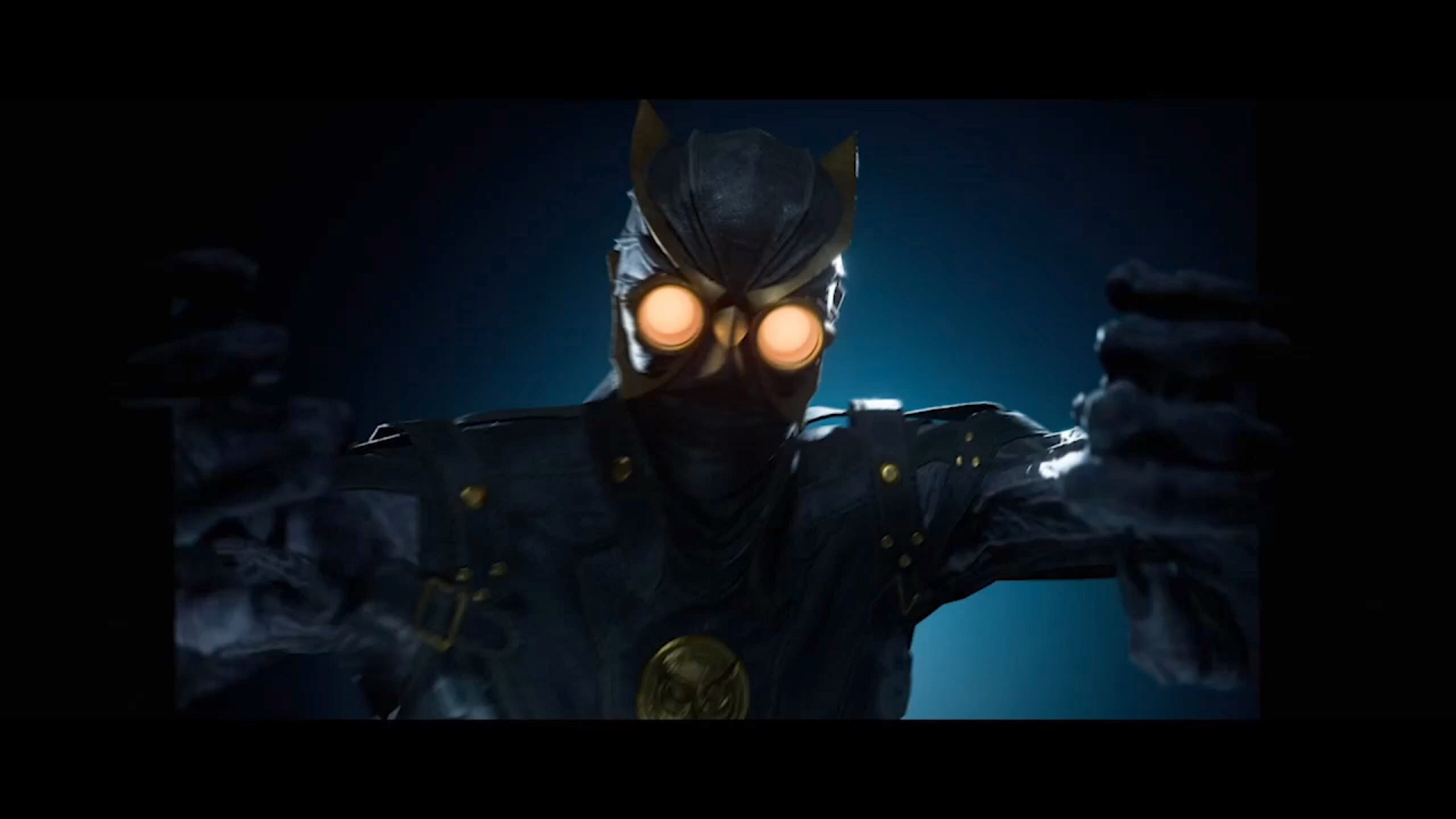Gotham Knights has a point to prove in the looming shadow of Arkham Origins
Is WB Games Montreal too focused on hype in its promotion of Gotham Knights?

Roughly two hours into Saturday’s almost four hours-long DC FanDome event, and we were given another glimpse of WB Games Montreal’s Gotham Knights. I say glimpse, because it was exactly that – a short cinematic focused on the Court of Owls, the upcoming and long-awaited action-RPG’s antagonist collective, who the game’s stars of Nightwing, Batgirl, Robin, and Red Hood will do battle with in the absence of the Caped Crusader.
No new gameplay, no new in-game footage. Just a series of admittedly pretty and atmospheric moving pictures, followed by a neat behind the scenes glance at how the game pulls from and expands upon the Batman vs Robin animated series. Officially, the latter has informed the former, so say its wealth of creators and contributors. Unofficially, though, I reckon 2013’s Arkham Origins has played just as big a role in the direction of Gotham Knights than anything else that’s come before it.
Superpower patience

Four hours is a long time. Even for the most devout DC fanatics among us – those who enjoy its comics, animated series, video games, and movies alike – asking anyone to commit one sixth of their day to something in any capacity is quite a demand. Should you instead prefer just one of those channels, like, say, video games such as Gotham Knights, five minutes of not-really-new information can make the rest of the show feel like a bit of a slog. Truly, my heart goes out to the film buffs made to wait for that trailer at the showcase’s very end.
There is of course a chance that Gotham Knights developer WB Games Montreal did not have any new in-game footage to show off at FanDome, but given this game was originally pencilled for release last year, now delayed to next year, that seems unlikely. What seems more plausible, is that the developer opted for a story trailer to match the all-consuming, multi-format scope of the show, and will (hopefully) have something more comprehensive for us in the not too distant future.
That’s not to be overly critical of FanDome itself. The fact that the folks at DC and Warner Bros were able to put on such a prolific, entertaining and celebrity-filled show last year during the heart of a global pandemic was superhero work, and the weekend’s feat was definitely more of the same. But in the process of pulling together all of its multimedia tendrils in one complete package, it feels like focus was lost in each area of interest. Which, truth be told, might have suited WB Games Montreal.
Origins story

"It’s clearly inspired by Rocksteady’s solid foundations, and, hopefully, lessons have been learned from the missteps Origins made the better part of a decade ago."
Prior to its first proper run at the Batman universe in 2013’s Arkham Origins, WB Games Montreal was best known for porting Arkham City – the second of Rocksteady Games’ eventual trio of Arkham games, in Asylum, City and Knight – to Wii U the previous year. When Arkham Origins did arrive in late 2013, it did so at the very end of a console cycle, in the wake of two critically and commercially successful series forerunners.
As such, it suffered a bit of an identity crisis. Despite its best attempts to mirror the tried and tested Arkham Asylum and City formulas, Origins often felt hollow and flat. It had a bigger map, for example, but had little to fill it with. Environments, such as the Gotham City Police Department station and The Penguin’s Royal Hotel, were rich in detail, but were spoiled by linear, poorly-paced missions whereby boxing your way out the door was the only means of exploration. It was a Rocksteady game at first glance, but, scratch a little beneath its action-heavy veneer, and it was something different entirely. In short – Origins was a good but not great superhero game, in the same way the outsourced Dark Souls 2 is the runt of that action-RPG series’ litter.
Weekly digests, tales from the communities you love, and more
Origins’ place in time suffered further still with the arrival of Arkham Knight in 2015, and Insomniac’s rivalling, console generation-spanning Spider-Man – released on the PS4 in 2018, and remastered for the PS5 at launch in late 2020. Despite some early performance issues on PC, the former was another critical and commercial gem, while the latter set a new standard in superhero storytelling, galvanised by a flurry of equally impressive DLC.

If WB Games Montreal was keen to be part of the conversation kick-started by Rocksteady 10 years ago, you’d imagine there’s even more riding on the success of Gotham Knights behind the scenes, and, in turn it appears the developer is leaning into the game’s hype and spectacle on this side of release. Which I’m all for, assuming it can live up to it. I was as disappointed as the next person not to have seen more of Gotham Knight’s nuts and bolts at FanDome, but the Court of Owls narrative sounds really interesting, and I have been impressed with what we’ve seen on the in-game footage front so far. It’s clearly inspired by Rocksteady’s solid foundations, and, hopefully, lessons have been learned from the missteps Origins made the better part of a decade ago.
Rocksteady Games is of course hard at work on Suicide Squad: Kill the Justice League, a new trailer for which also appeared at FanDome, and is, expectedly, a shift in tone away from the developer’s past forays into the DC Universe. Gotham Knights, on the other hand, is treading a familiar, darker path into the world of Batman and his costume-kitted peers – I’m just at the stage now where I want to see more of it in motion. And whenever we get that, here’s hoping for a showcase that’s a little less time-consuming. That’d be super.
Here are some of the best superhero games to play while you wait for Gotham Knights.

Joe Donnelly is a sports editor from Glasgow and former features editor at GamesRadar+. A mental health advocate, Joe has written about video games and mental health for The Guardian, New Statesman, VICE, PC Gamer and many more, and believes the interactive nature of video games makes them uniquely placed to educate and inform. His book Checkpoint considers the complex intersections of video games and mental health, and was shortlisted for Scotland's National Book of the Year for non-fiction in 2021. As familiar with the streets of Los Santos as he is the west of Scotland, Joe can often be found living his best and worst lives in GTA Online and its PC role-playing scene.


